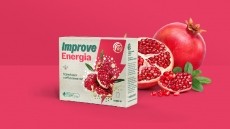Protein-pectin complex eyed as ingredient encapsulator
encapsulating water-soluble ingredients like some vitamins for use
in acidic foods, Canadian scientists have reported.
The research could give key insights into maximising formulation and delivery techniques for such value-added ingredients.
With the fear of commodification continuously looming, food manufacturers are turning to microencapsulation technologies as a way of achieving much-needed differentiation and enhancing product value.
Addition of health-related ingredients is also becoming increasingly important to food manufacturers.
The new research, published in the journal Food Hydrocolloids , lead author Gerard Bédié from Laval University's Institute on Nutraceuticals and Functional Foods, looked at the potential of whey protein isolate (WPI) and low methoxyl pectin (LMP) complexes to entrap the B vitamin thiamine at low pH levels for use in acidic foods.
The researchers looked at the effect of acidifying the complex mixture before (pre-) or after (post-) blending the protein and pectin.
The effect of protein:pectin ratio and different pH ranging from 2.5 to 4.0 were investigated.
"Although thiamine entrapment with both pre- and post-blend systems indicated optimum entrapment at pH 3.5, which is appropriate for acidic foods, post-blending acidification may be preferred for hydro-soluble ingredients, considering the structural advantages of the resulting complexes," wrote the researchers.
Bédié and co-workers also report that the best structure for thiamine entrapment was obtained with post-blending acidification at a protein:pectin ratio of 2:1.
"A relatively small amount of dry complexes would be needed to satisfy the recommended daily amount of thiamine.
Studies of the effect of vitamin concentration on thiamine content of the complexes and the protective effect of the complexes on the entrapped-vitamin are under investigation in our laboratory," they concluded.
Thiamine, vitamin B1, plays an important role in helping the body convert energy sources like carbohydrates and fats into energy.
The recommended daily amount in most countries is set at 1.5 milligrams.
Source: Food Hydrocolloids (Elsevier) Published on-line ahead of print, doi: 10.1016/j.foodhyd.2007.03.010
"Formation of native whey protein isolate-low methoxyl pectin complexes as a matrix for hydro-soluble food ingredient entrapment in acidic foods" Authors: G.K. Bédié, S.L. Turgeon and J. Makhlouf











